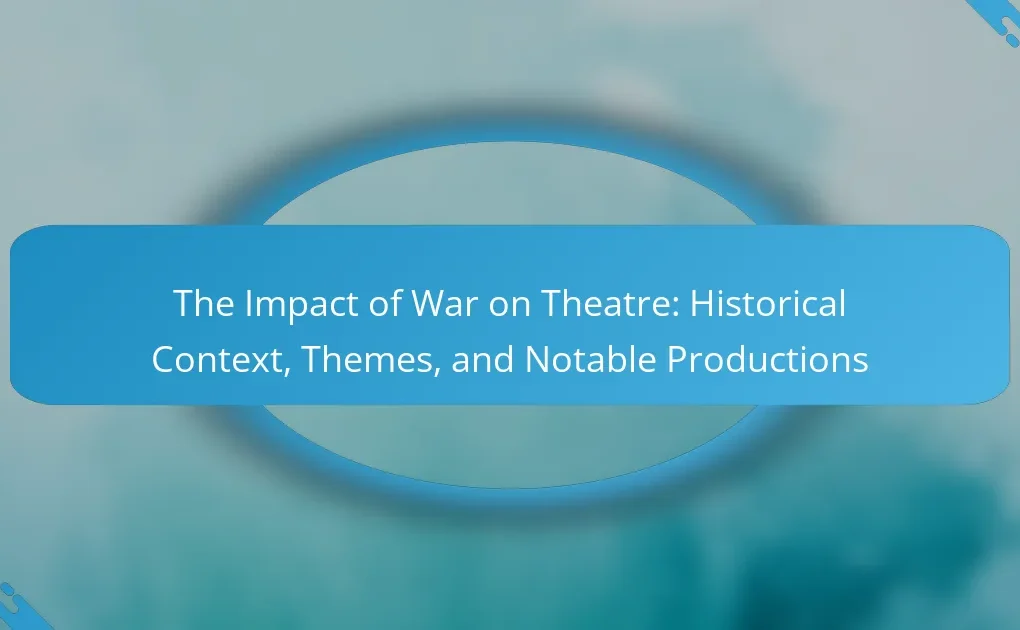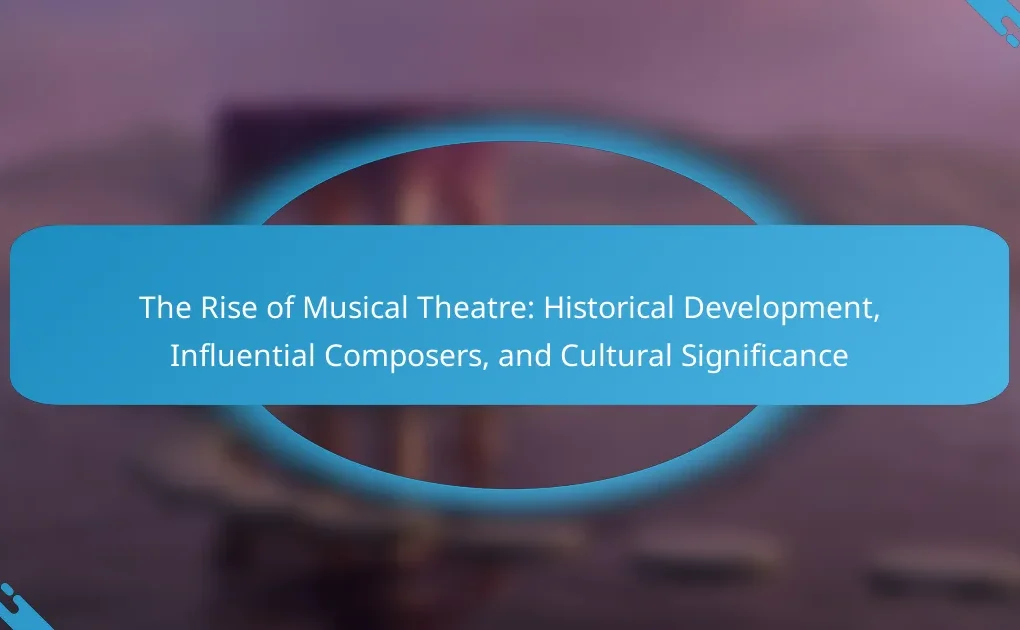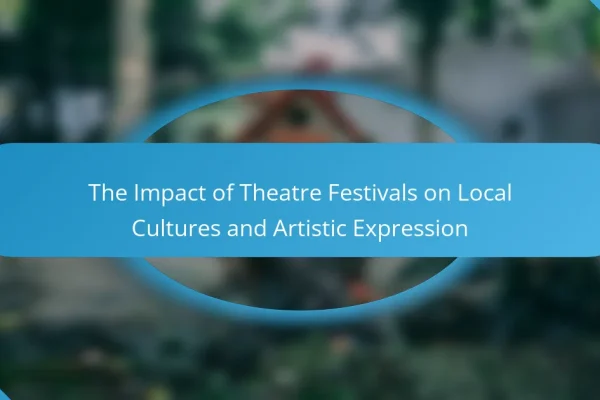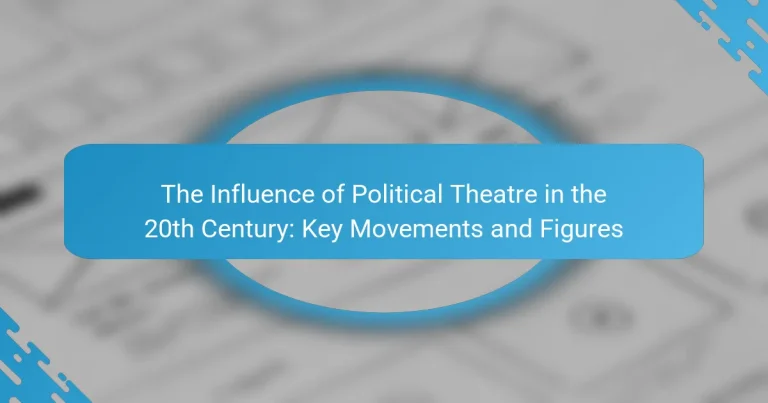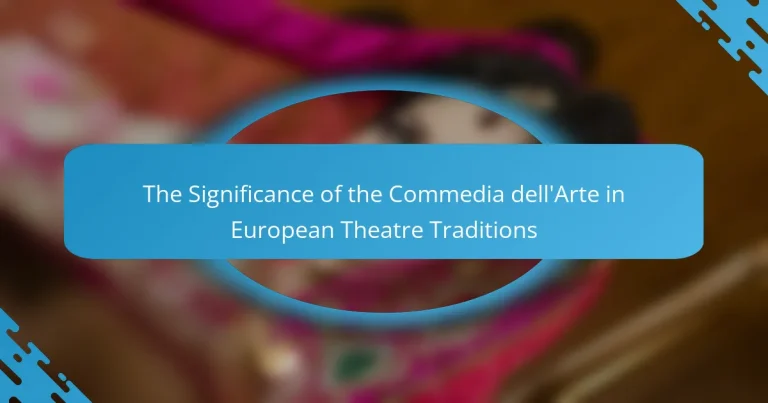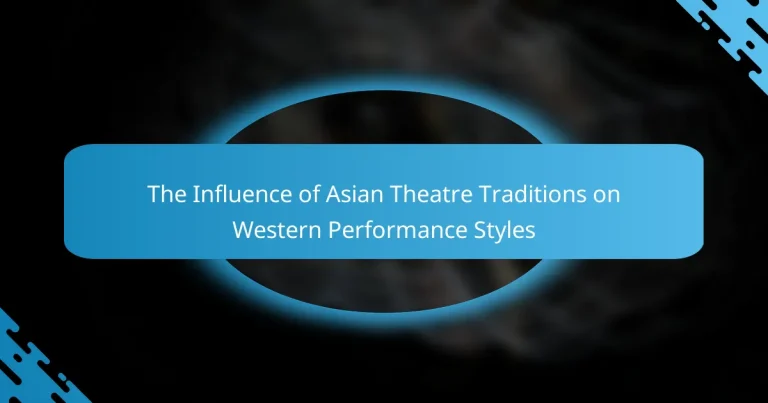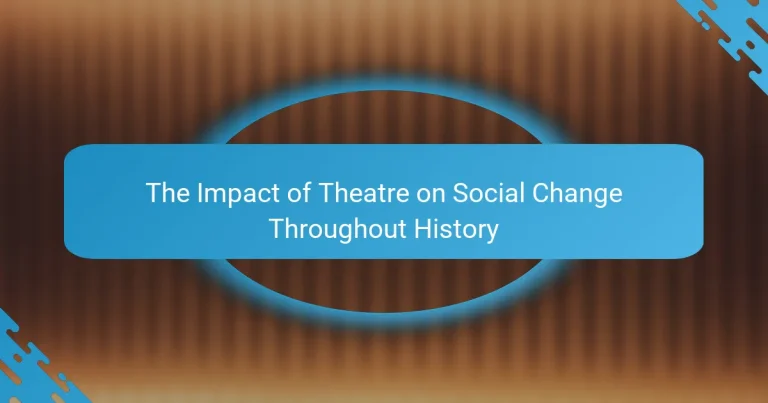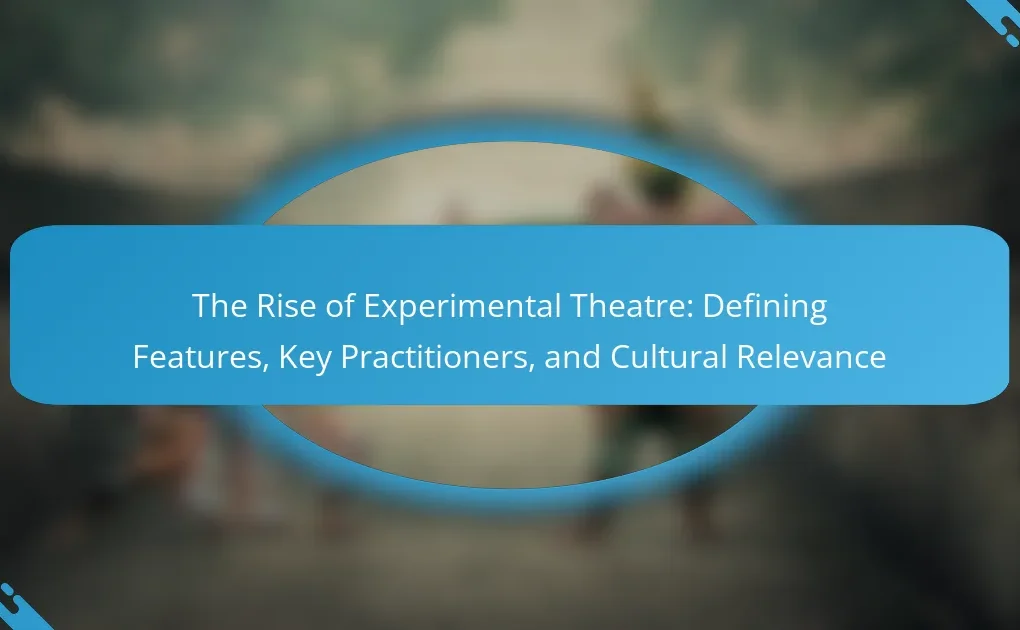
Welcome to Ephratamain.com
Step into the enchanting world of theatre history with Ephratamain.com, your ultimate destination for exploring the rich tapestry of dramatic arts. Whether you are a passionate theatre enthusiast, a student, or simply curious about the evolution of this captivating field, our platform offers a treasure trove of insights, stories, and scholarly resources. Join us as we celebrate the artistry, the struggles, and the remarkable figures that have shaped theatre over the centuries.
At Ephratamain.com, we believe that understanding theatre history allows us to appreciate the theatre we experience today. Our expertly curated content spans various eras, styles, and cultural movements, providing a comprehensive overview that illuminates the connections between past and present. Connect with fellow enthusiasts, engage with our thought-provoking articles, and immerse yourself in the vibrant world that has fascinated audiences and creators alike.
Explore Our Key Features
- In-depth Articles on Historical Movements
- Profiles of Influential Playwrights and Performers
- Interactive Timelines and Milestones
- Multimedia Resources Including Videos and Podcasts
- Community Forum for Discussions and Networking
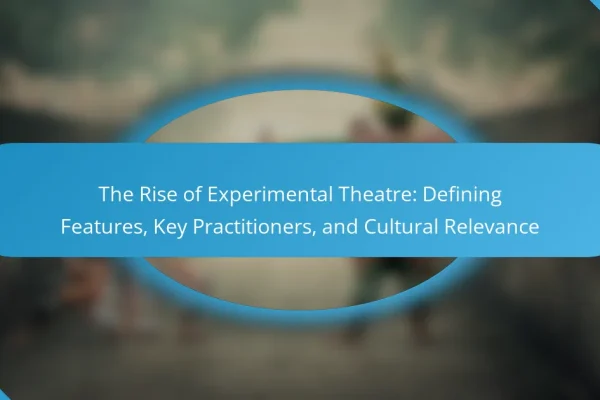
The Rise of Experimental Theatre: Defining Features, Key Practitioners, and Cultural Relevance
Experimental theatre is a performance genre that challenges traditional theatrical conventions through innovative storytelling, unconventional structures, and audience interaction. Key practitioners such as Jerzy Grotowski, Antonin Artaud, and Robert Wilson have significantly influenced its evolution, introducing concepts like the “Theatre of the Poor” and the “Theatre of Cruelty.” This genre addresses contemporary societal issues, fostering…
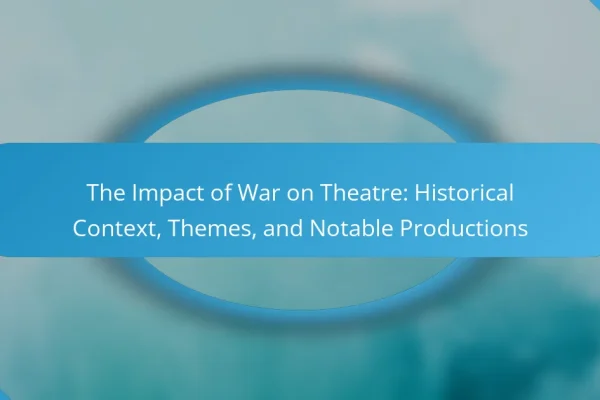
The Impact of War on Theatre: Historical Context, Themes, and Notable Productions
The article examines the impact of war on theatre, focusing on how historical events shape themes, styles, and production practices within the performing arts. It highlights the emergence of Absurdist theatre in response to the chaos of World War I and II, as well as the influence of war on minimalist staging due to resource…
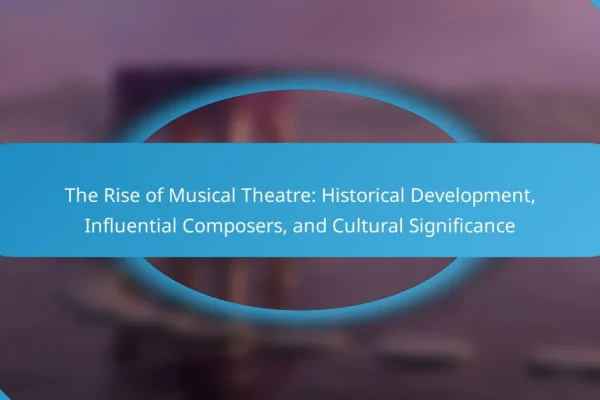
The Rise of Musical Theatre: Historical Development, Influential Composers, and Cultural Significance
Musical theatre is a dynamic art form that originated in the early 20th century, evolving from operetta and vaudeville to combine music, dance, and dialogue in storytelling. Key developments occurred in the 1920s with Broadway’s rise, highlighted by productions like “Show Boat,” which introduced serious themes. The Golden Age of musical theatre in the 1940s…

The Cultural Relevance of ‘Fences’: Racial Identity, Family Dynamics, and Historical Context
The article examines the cultural relevance of the play “Fences,” written by August Wilson, focusing on themes of racial identity, family dynamics, and historical context within the African American experience. It discusses how the protagonist, Troy Maxson, represents the struggle against systemic racism and personal aspirations in the 1950s, highlighting the impact of segregation and…

The Development of Theatre Technology: Innovations and Their Effects on Performance
The article focuses on the development of theatre technology, highlighting advancements in tools and techniques that enhance theatrical productions. Key innovations include gas and electric lighting, sound technology such as microphones and amplifiers, digital projections, and automated stage mechanics. These technologies improve visibility, auditory experiences, and storytelling possibilities, significantly impacting audience engagement and production efficiency….

The Role of Shadow Theatre: Historical Context, Techniques, and Global Variations
Shadow Theatre is a performance art form that utilizes silhouettes to narrate stories through the projection of shadows created by puppets or figures. This article explores the historical context of shadow theatre, tracing its origins in various cultures such as Indonesian Wayang Kulit, Chinese shadow plays, and others. It details the techniques employed in shadow…

The Significance of Community Theatre: Local Engagement, Educational Value, and Artistic Expression
Community theatre is a vital entity that enhances local engagement by providing a platform for artistic participation within communities. It fosters social connections among residents and serves as an educational resource, offering skill development in acting, directing, and stage production for individuals of all ages. Through these experiences, community theatre builds confidence and creativity while…
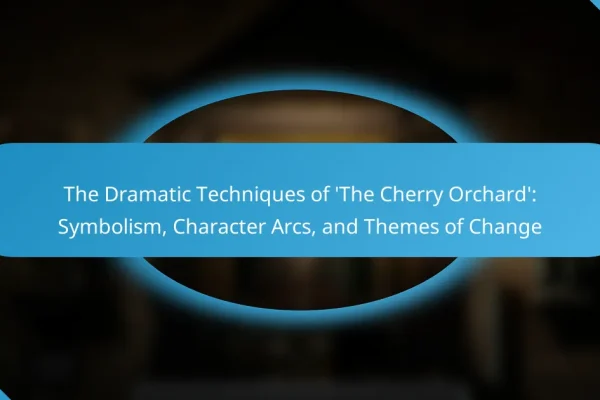
The Dramatic Techniques of ‘The Cherry Orchard’: Symbolism, Character Arcs, and Themes of Change
The article examines the dramatic techniques used in Anton Chekhov’s play ‘The Cherry Orchard,’ focusing on key elements such as symbolism, character arcs, and themes of change. Symbolism is illustrated through the cherry orchard, which signifies lost wealth and the passage of time. The character arcs, particularly of Ranevskaya, demonstrate the struggle with change amid…

The Impact of Anton Chekhov: Character Development and Playwriting Style
Anton Chekhov is a pivotal figure in literature known for his innovative character development and playwriting style. His works, including “The Cherry Orchard” and “Uncle Vanya,” emphasize realistic portrayals of human emotions and relationships, highlighting the complexities of everyday life. Chekhov’s techniques, such as the use of subtext and the principle of “Chekhov’s gun,” focus…
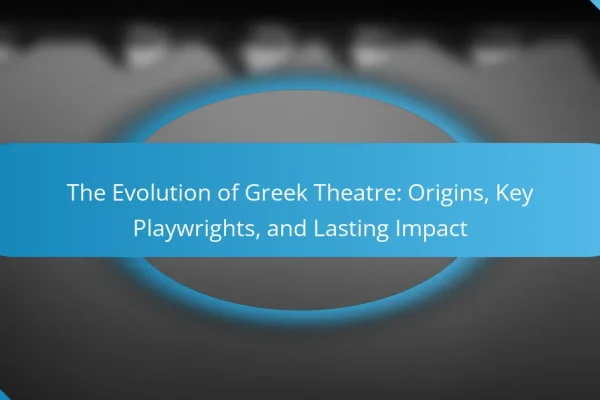
The Evolution of Greek Theatre: Origins, Key Playwrights, and Lasting Impact
Greek theatre originated in the 6th century BCE in Athens, evolving from religious festivals dedicated to the god Dionysus. Key figures in this development include Aeschylus, who introduced the second actor, Sophocles, who added a third actor and enhanced stagecraft, and Euripides, known for his complex characters. The evolution of Greek theatre established foundational elements…
